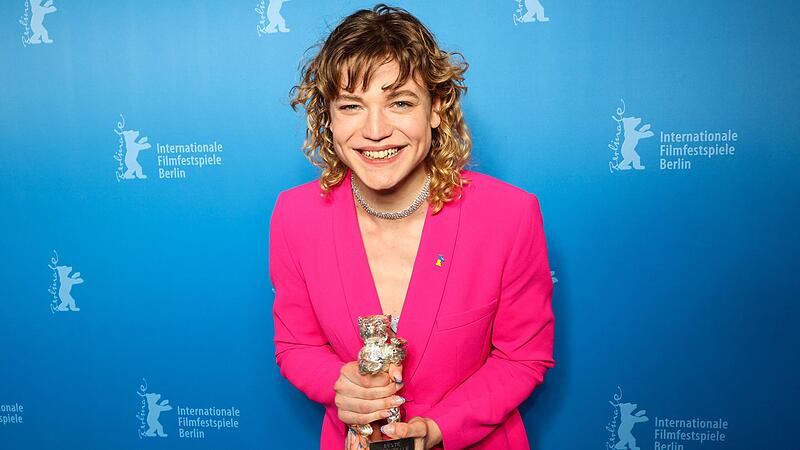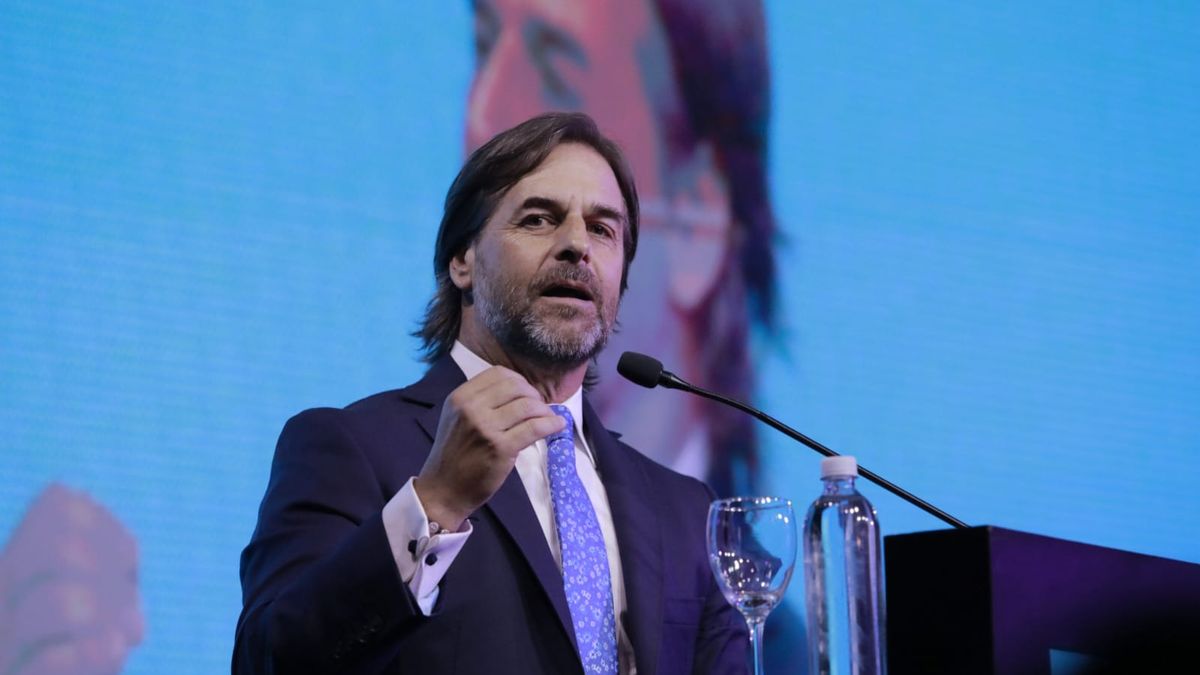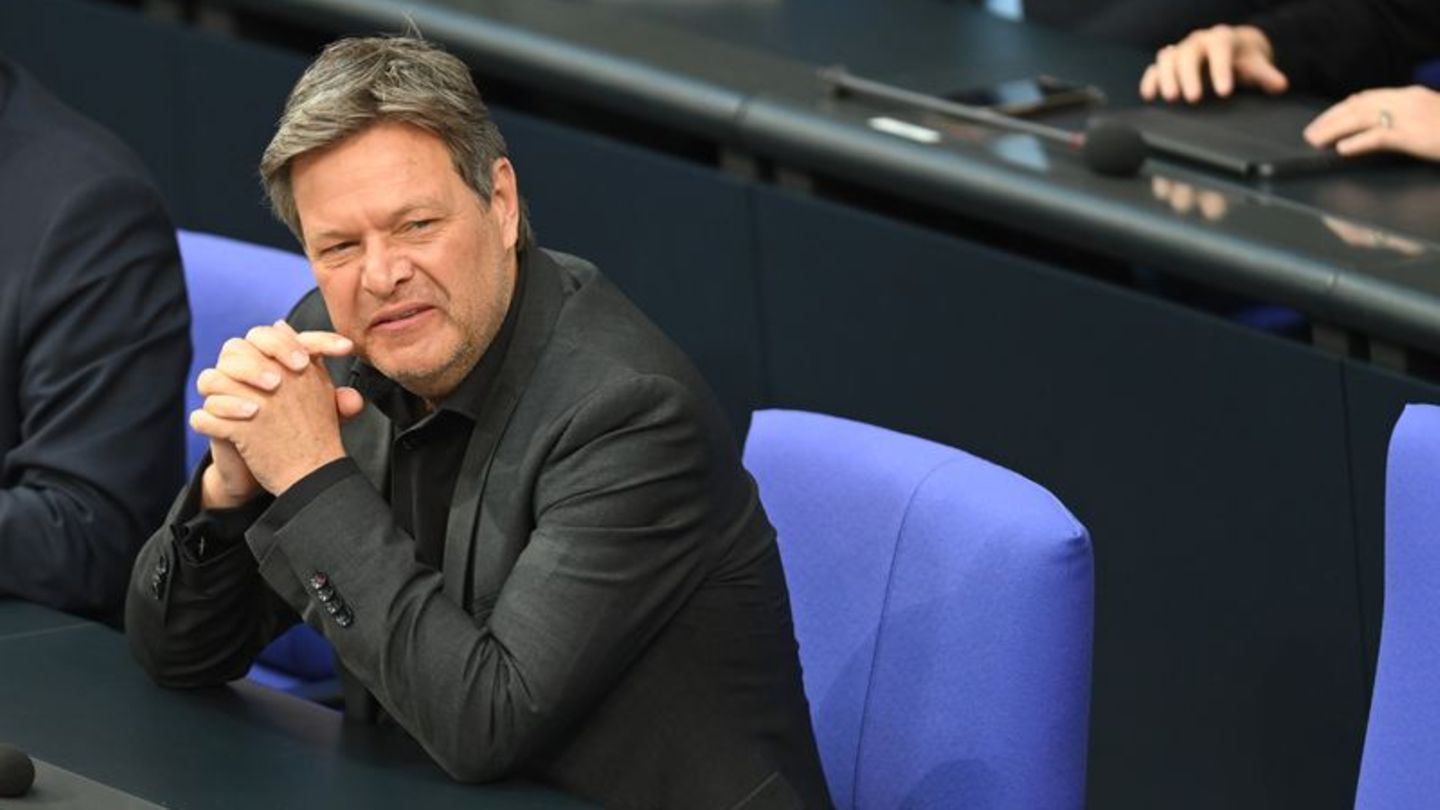Image: JORG CARSTENSEN (POOL)
Thea Ehrlich, who grew up in Wels and Marchtrenk, surprised the film world at this year’s Berlinale: The 23-year-old won the Silver Bear, the highest acting award at the renowned film festival. She is currently celebrating her series debut in “Sexplanation” on the Canal+ streaming service, a production that educates about social identity and sexual orientation.
OÖN: What attracted you to the role of Laura?
Thea honor: With “Sexplanation” the director Hanna Mathis wrote to me on Instagram that she had a role that would suit me well. So I said: Yes, fix it, then I’ll come to the casting. I didn’t know much about the character back then. It wasn’t until I read the script that I realized that Laura is very close to me in the way she goes through life and is very open. There is something very positive about her and at the same time I find it very nice that she often has an open ear for others and follows the feeling of always taking care of others a little. In the series, she comes up with things that other people do and takes on the position of the “mother of the shared flat”, which I personally find very funny for someone who has just joined a shared flat. I find this empathetic streak very sweet.
Does that mean you also see yourself as an empathetic person?
I try to be one as much as possible. For me, being empathetic and listening are among the most beautiful things people can do with each other. It also has a lot to do with acting in a broader sense. I think it’s less about staging yourself and living out your ego, and more about playing a kind of ping-pong game with others and responding to them, listening and reacting.
What about the role of Laura gives you the feeling that you might be able to contribute with her portrayal to removing taboos, inhibitions and misunderstandings in matters of sexuality, sexual orientation and identity?
I am always very happy when there is a positive portrayal of trans women in films and series. And with Laura, that was a great success. She lives her life. I think each of the characters you see in this flat share is incredibly charmingly written. You really like going with them, I think that’s very clever, because it serves the series, because it’s also designed to enlighten.
The fictional narrative of the flat share is supplemented by interviews with experts and activists. What about Laura?
On the one hand, with Laura we tried to present a real story about the life of a trans woman – one can never speak for everyone – and without clichés. On the other hand, there is the Viennese activist Steffi Stankovic, who talks about her personal experiences or those she knows from her work. I find this separation between acting narrative, explanation and personal experience to be a very good combination. If you look at “Sexplantion” about
as a parent of a child who is transgender, I think they have a lot to learn. Above all, that everything is not as difficult as it was when they were young, that there are more opportunities and that trans people can be really happy today.
Often negative experiences and hard life struggles dominate films and series on this topic?
You can currently see a lot of films and series with queer themes, which is also great. But often stories are told that are not very positive and deal with precarious situations. That’s why it’s all the more important to offer material that shows characters that the community can think about: yes, there are people like us who are doing well, who are happy, there is definitely hope. I think that can be very important and healing, especially for young people. Because when young people in particular only look at work in which everything is negative and only obstacles are put in the way of a person who comes out as trans, that is certainly not nice and constructive. That’s why it’s good if something changes here.
The ideal that lies in the future would be to tell about people per se, whose sexual orientation and social identity take a back seat and are no longer cliché stamps. Is that the case with Laura?
Exactly. It is told that Laura is a trans woman, which is important and can always be done, but at the same time it is not judged, either positively or negatively. It is a human being and each human being has to classify himself as good or bad. I think it’s nice that the focus is now more on the history of the person and less on their identity and sexual orientation. There’s a lot more behind it. Being trans is a huge part of identity, but it’s not everything. I don’t get up in the morning, put on my “trans clothes” and drink my “trans coffee” (laughs).
In your opinion, what is the biggest difference between the younger generation and their parents’ and grandparents’ generations when it comes to dealing with sexuality, gender and identity? The younger ones will probably find it easier?
Yes I believe that too. I’m 23 years old now, but when I was 12 or 13 years old, social media like TikTok or Instagram, which are important for getting information and exchanging ideas, weren’t there with this intensity. Instagram was just on the rise. Of course I was influenced by the media in my socialization, but I never had anything to do with other trans people growing up. For a long time I didn’t even know that it was possible to have sex reassignment surgery and take hormones. I don’t want to say that everything is better now. But there is simply more information and channels – on a global level. Someone recently said to me that young people think faster and faster. I think so too, she’s incredibly smart when it comes to dealing with what creates awareness. That’s why I think it’s important right now to tell realistic, authentic, good stories. Which is all the more important because one thing must not be forgotten: hyperconservative, discriminatory content can also be spread on the internet.
During your studies of theatre, film and media studies you dealt with the portrayal of trans people. What did you discover there?
It was crass what was produced there: cliche and joke characters, trans people were always just men disguising themselves as women. The pictures that I described in my bachelor thesis were from 2004. It’s not that long ago. Now we’re somewhere completely different.
In your opinion, how can “young and old” manage to approach each other and learn from each other? How can audiovisual culture play a role here?
I think you have to be careful now to offer productions that grab everyone and are aimed at the majority. Also to those people who grew up with taboos and may have never had anything to do with trans people. That would be difficult if you only shoot films or series that are only aimed at the community or only at young people. This could lead to a generation feeling rather left out. But it is much more about creating a discourse that serves all generations, so that it is said that we want to talk, listen and learn from each other together.
What made it easier for you personally to communicate openly about sexuality, identity and love? Were there people who gave you courage, showed you the way and served as role models?
I have and had a very cool circle of friends, and because of friends who had already come out as queer back then, I didn’t have the feeling that it was anything funny. And I was always able to talk to my parents and my brother about anything. I was very fortunate from an early age. My mom just told me that when I was three years old I said I wanted to live as a girl and she said to me, “Yeah, sure. If you’re ready for it, then that’s fine.” I didn’t have the pressure to come out immediately because I knew my family saw me for who I am. It wasn’t until I went to Vienna and introduced myself to new people that I realized that I no longer wanted to introduce myself the way I used to (as David and with male pronouns, note). I wanted to try what it’s like to introduce myself as Thea and with female pronouns. It just felt so much more right. For everyone who knew me from before, this change was very easy. I was impressed how quickly they started using my new name. I have already selected the right people in my immediate environment.
Her victory at the Berlinale was a big, wonderful surprise. How do you feel now about classifying this experience?
I’ve been in an acting agency for less than three years, so I’m very new to the industry. A world I’ve only ever dreamed of. My agent, Marketa Modra, took me in with no real material or acting training, for which I am incredibly grateful to this day. She just gave me a chance and I wanted to take that chance. When this casting came in for this beautifully written role of Leni in the film “Until the end of the night”, I was super excited and knew I really wanted to tell this story. With my acting coach Jonny Hoff, I then approached a character of this size for the first time and tried to understand her so well that I could be completely free in front of the camera. The words of Kristen Stewart and Francine Maisler (from the Berlinale jury, note) touched me so much, because it’s such a nice feeling to get recognition for what you’re passionate about. I’m still pretty flabbergasted to this day.
What goals are you pursuing in your professional development in acting?
I’m a gut instinct person. It’s different than I used to be, I was always very cerebral and I thought a lot, but after I came out, at some point I thought for myself, when I’m lying in bed in the evening and can say I’m fine, I’m happy, I experienced something today and achieved something, then that’s success for me. I hope that in ten years’ time I’ll still think that way and get interesting roles. And for me, success is always being able to make a living from what I enjoy doing. That would be the best thing of all, being able to establish myself in this industry and having fun.
more from culture
Spotify: Number of millionaires increased only slightly
Author Dževad Karahasan (✝70): The converter between the worlds is dead
“Tatort” from Munich: embarrassments that Batic and Leitmayr were spared
Book recommendation: Disappeared – where did they all go?
: Nachrichten

I am an author and journalist who has worked in the entertainment industry for over a decade. I currently work as a news editor at a major news website, and my focus is on covering the latest trends in entertainment. I also write occasional pieces for other outlets, and have authored two books about the entertainment industry.
I am an author and journalist who has worked in the entertainment industry for over a decade. I currently work as a news editor at a major news website, and my focus is on covering the latest trends in entertainment. I also write occasional pieces for other outlets, and have authored two books about the entertainment industry.




